MEDIA FOR CHANGE NETWORK
The African Development Bank and the Tree Plantations Industry
Published
5 years agoon
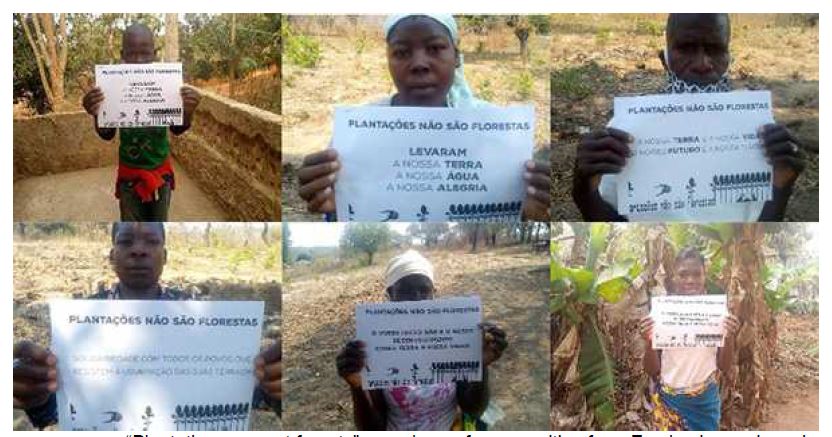
“Plantations are not forests”, members of communities from Zambezia province, in Mozambique.
In June 2019, the report “Towards Large-Scale Commercial Investment in African Forestry,”
(1) made a call to development-funding agencies, mainly from Europe, and the World Bank,
to provide aid money to a new Fund for financing 100,000 hectares of (new) industrial tree
plantations, to support the potential development of 500,000 hectares, in Eastern and
Southern Africa. This money, according to the report, would be crucial for private investors to
generate profits from the plantations. The new Fund would be headquartered in the tax
haven of Mauritius.
The African Development Bank (AfDB) and WWF Kenya produced this report with funding
from the World Bank’s Climate Investment Funds. The purpose of the report is to assist the
AfDB “in evaluating and designing alternative private funding models for commercial forestry
in Africa with a view to ultimately establishing, or aiding the establishment of, a specialized
investment vehicle for commercial forestry plantations.” The report declares that the
development agencies from Finland, Sweden, Norway, Denmark, Iceland, the United
Kingdom and The Netherlands are interested.
Essentially, the report is a praise to industrial monoculture plantations. It repeats, without
providing any evidence, most of the deceiving arguments that plantations companies use in
their propagandas to cover up the impacts of this devastating industry. The report’s focus is
on outlining the possible financial instruments that would attract companies to this region and
make their investments most profitable.
The report identifies “readily available projects with the potential to establish almost 500,000
ha of new forest (sic) on about 1 million ha of landscape, not including areas that existing
companies and developers are already planning to use for own expansion. It also excludes
early stage or speculative projects.” (italics added) In particular, the report identifies “viable
plantation land” in ten countries: Angola, Republic of Congo, Ghana, Mozambique, Malawi,
South Sudan, Tanzania, Uganda, Zambia and Zimbabwe.
The report further affirms that “Africa may be positioned to have the most profitable
afforestation potential worldwide.” And, then, it goes into explaining the possible investment
schemes that can make profit-oriented business and afforestation objectives (from climate or
voluntary targets) to be aligned and, thus, generate more profits for shareholders.
None of the pages in the report mention, however, not even indirectly, the overwhelming
amount of information that evidences the many negative impacts that industrial plantations
cause to communities and their environments. The report’s authors chose to ignore
plantations companies’ destruction of forests and savannahs; erosion of soils; contamination
and dry-up of water sources; overall violence inflicted on communities which include
restriction of movement, criminalization when resistance emerges, abuse, harassment and
sexual violence in particular to women and girls; destruction of livelihoods and food
sovereignty; destruction of cultural, spiritual and social fabrics within and among
neighbouring communities; few precarious and hazardous jobs; unfulfilled “social” projects or
promises made to communities; destruction of ways of living; rise in HIV/AIDS; and the list
goes on.
In front of this, on September 21, 2020, the International Day of Struggle against
Monoculture Plantations, 121 organisations from 47 countries and 730 members from
different rural communities in Mozambique that are facing industrial tree plantations,
disseminated an open letter to demand the immediate abandonment of any and every
afforestation programme based on large-scale monoculture plantations. (2)
The report, nonetheless, brags about having used a “sector-wide consultation exercise.”
For the authors, the sector includes “industry participants ranging from investors, industrial
players, and Non-Governmental Organizations (NGOs) through to forestry fund managers
(…) To further enrich and triangulate inputs to the study, the team also participated in three
forestry industry events and consulted with a broad range of personal contacts in the sector.”
The report also mentions consultations made to Development Finance Institutions and
agencies as well as oil and other industrial companies. It is clear however how communities
living in or around the almost 500,000 hectares of land identified to be transformed into
industrial monocultures, are not considered part of the sector. Nor were considered the many
communities and groups that have been resisting for decades the plantations in the countries
the report use as examples: Tanzania, Mozambique, Ghana and Brazil. (3)
The report further sustains that the NGO Conservation International confirmed “that it sees
potential in associating large global businesses with the forestry sector.” It further mentions
WWF and The Nature Conservancy – namely, the same category of NGOs mainly concerned
on promoting programs and policies that are aligned with corporate interests as an easy way
to keep their funding, projects and investments.
The purely financial focus of this report, with an eye on how to make most profits, should not
come as a surprise though. It was prepared by a company called Acacia Sustainable
Business Advisors (4), which was set up by Martin Poulsen, a development banker active in
rising private Equity Funds particularly in Africa. Equity Funds try to offer big returns by
spreading investments across companies from different sectors. (5) One co-author of the
report was Mads Asprem, the ex-director of Green Resources, a Norwegian industrial tree
plantation and carbon offsets company. Green Resources’ tree plantations in Mozambique,
Tanzania, and Uganda have resulted in land grabs, evictions, loss of livelihoods and
increased hunger for local communities. (6)
The report also shows the possible responses that investors could have to potential
“barriers”. One “structural barrier” identified is called “stakeholder relations,” a very vague
concept that seems to be related to possible conflicts with communities living in or around
the plantation projects. The term “conflicts” however is not mentioned once in the whole
report. The recommended response to this “barrier” is to “Use AfDB or other MDB
[Multilateral Development Bank] “honest broker” profile to convene stakeholders.” So it
seems that the strategy is to use development banks to make communities believe that the
project has the intention of improving (developing) people’s lives. Another “structural barrier”
identified in the report is “land tenure challenges,” to which the recommended response is to
“Follow FSC and other best practices.” This, of course, is recommended despite the vast
amount of information that shows how, in practice, FSC certifies as “sustainable” industrial
tree plantations that destroy peoples’ livelihoods.
When the climate and development agendas blend for profit
It is relevant to underline how the report makes use of the Sustainable Development Goals
(SDG) and the need for climate change mitigation and adaptation in the African region to
promote the further expansion of industrial plantations. It goes as far as to conclude that
“Channelling financial resources to such efforts [afforestation in the framework of the SDGs]
is within the mandate of international development organizations and special climate funds.”
The report also states that “preliminary interviews yielded information that some oil
companies are already forming alliances with sustainable forestry investment companies.”
This despite the fact that oil and gas companies are a fundamental driver of climate change,
which would undermine any possible positive outcome for the climate. Besides, these
‘alliances’ also give these companies an easy way out of any responsibility for their business
operations. This is clearly exemplified with the announcement of oil giant companies, such as
Italian ENI and Anglo-Dutch Shell, to invest in mega tree plantation projects to supposedly
“compensate” their mega levels of pollution they provoke. These two companies are
responsible for environmental disasters and crimes as a result of their fossil fuel activities in
many places across the globe. (7)
The African Development Bank is complicit in this strategy. While the Bank finances this
report encouraging the expansion of industrial plantations in Africa as a climate solution, it
finances in Mozambique a new gas extraction mega-project in the Cabo Delgado province,
undertaken by a consortium of companies including ENI.
This report is one more proof of how investments from profit-seeking corporations are put in
front of the social well being of people in the name of development and now also of
addressing climate change. There is no “unused” or “degraded” land available at the scale
proposed, which means countless people in Africa will be directly and indirectly affected if
this expansion plan materialise.
Another relevant omission of the report is how it bluntly assumes that the current scarcity of
investment in large-scale tree plantations in this African region is due to the few investment
opportunities available. However, the communities and groups on the ground organizing
almost on a daily basis to oppose the seizing of their lands and lives by these plantations
companies, have clear that their resistance has been successful to halt the expansion of
these plantations in many places. And as the open letter launched on September 21st said,
communities around the world “will certainly resist this new and insane expansion plan
proposed in the AfDB and WWF-Kenya.”
(1) AfDB, CIF, WWF, Acacia Sustainable, Towards large-scale investment in African forestry, 2019,
http://redd-monitor.org/wp-content/uploads/2020/09/towards_largescale_
commercial_investment_in_african_forestry.pdf
(2) Open Letter about investments in monoculture tree plantations in the Global South, especially in
Africa, and in solidarity with communities resisting the occupation of their territories, 2020,
https://wrm.org.uy/wp-content/uploads/2020/10/carta-con-firmas-en-inglés_upd201008.pdf
(3) See more information on resistance struggles against plantations here: https://wrm.org.uy/browseby-
subject/international-movement-building/local-struggles-against-plantations/
(4) Acacia Sustainable Business Advisors, https://www.acaciasba.com/about
(5) Groww, Equity Mutual Funds, https://groww.in/p/equity-funds/
(6) REDD-Monitor, How WWF and the African Development Bank are promoting lang grabs in Africa,
2020, https://redd-monitor.org/2020/09/22/international-day-of-struggle-against-monoculture-treeplantations-
how-wwf-and-the-african-development-bank-are-promoting-land-grabs-in-africa/ ; The
Expansion of Tree Plantations on Peasant Territories in the Nacala Territories: Green Resources in
Mozambique, 2018, https://wrm.org.uy/articles-from-the-wrm-bulletin/recommended/the-expansion-oftree-
plantations-on-peasant-territories-in-the-nacala-corridor-green-resources-in-mozambique/ ; WRM
bulletin, Green Resources Mozambique: More False Promises! 2018, https://wrm.org.uy/articles-fromthe-
wrm-bulletin/section1/green-resources-mozambique-more-false-promises/ ; WRM bulletin, Carbon
Colonialism: Failure of Green Resources’ Carbon Offset Project in Uganda, 2018,
https://wrm.org.uy/articles-from-the-wrm-bulletin/section1/carbon-colonialism-failure-of-greenresources-
carbon-offset-project-in-uganda/ ; WRM bulletin, Tanzania: Community resistance against
monoculture tree plantations, 2018,
https://wrm.org.uy/articles-from-the-wrm-bulletin/section1/tanzania-community-resistance-againstmonoculture-
tree-plantations/ ; and WRM bulletin, The farce of “Smart forestry”: The cases of Green
Resources in Mozambique and Suzano in Brazil, 2015, https://wrm.org.uy/articles-from-the-wrmbulletin/
section1/the-farce-of-smart-forestry-the-cases-of-green-resources-in-mozambique-andsuzano-
in-brazil/
(7) REDD-Monitor, NGOs oppose the oil industry’s Natural Climate Solutions and demand that ENI
and Shell keep fossil fuels in the ground, 2019, https://wrm.org.uy/other-relevant-information/ngosoppose-
the-oil-industrys-natural-climate-solutions-and-demand-that-eni-and-shell-keep-fossil-fuels-in the-
ground /
WRM Bulletin
Related posts:
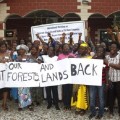
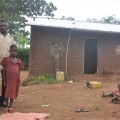 The enduring legacy of a little-known World Bank project to secure African plantations for European billionaires
The enduring legacy of a little-known World Bank project to secure African plantations for European billionaires
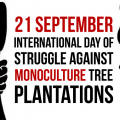 Witness Radio – Uganda, Community members from Mozambique and other organizations around the world say NO to more industrial tree plantations
Witness Radio – Uganda, Community members from Mozambique and other organizations around the world say NO to more industrial tree plantations
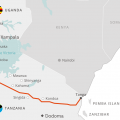 CSOs to African Development Bank: Don’t fund EACOP
CSOs to African Development Bank: Don’t fund EACOP
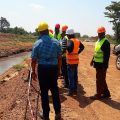 Open letter to African Development Bank and Nordic Development Fund: Address reprisals against Paten Clan
Open letter to African Development Bank and Nordic Development Fund: Address reprisals against Paten Clan
You may like
MEDIA FOR CHANGE NETWORK
Land tenure security as an electoral issue: Museveni warns Kayunga land grabbers, reaffirms protection of sitting tenants.
Published
1 day agoon
January 5, 2026
By Witness Radio Team
As Uganda heads to the polls on January 15, President Yoweri Museveni warned land grabbers in Kayunga District against illegally evicting tenants, stressing that such actions are unlawful and will be met with resistance by his government.
The President made the remarks during a campaign rally at the Busaana Town Council grounds, following years of persistent land disputes in the district, primarily linked to conflicts between landlords and tenants, which have affected many families and communities.
For those who have been following land-related developments in Kayunga, this was not the first time Museveni has addressed or intervened in land matters in Kayunga. In 2013, Museveni visited Kayunga District twice within one month in an attempt to find a permanent solution to land wrangles in the area. Many other visits have followed, but the problem continues to escalate, worrying residents.
For more than a decade, Kayunga district in Central Uganda has been a hotspot for illegal land evictions. More than 50,000 people have suffered from land evictions that have resulted in violence and loss of lives.
These are orchestrated by purported landlords, bigshots, government entities, and investors who seek to acquire, or already acquire, land occupied by tenants and landlords, forcing people off their land. These disputes have often escalated into violence, leaving families displaced and livelihoods disrupted.
Among these cases are: the famous Karangwa land wrangle, which caused suffering of over 2000 people in Kinamawanga and Kayonza villages, National Forestry Authority evictions of more than 8,000 tenants from Bajjo Central Forest Reserve in Galilaaya Sub-county, Kayunga District, a long-standing land dispute between residents of Bukerere village in Kayonza Sub-County and an Indian investor, Mr Chary Neekamika, among others. As a result, many families have been forcibly removed from their land, disrupting livelihoods and fueling prolonged conflicts.
Despite repeated interventions by government ministries and officials, the evictions have continued, leaving affected communities in a cycle of uncertainty and suffering.
During a visit to one of the contested areas in 2024, the State Minister for Lands, Dr. Sam Mayanja, sharply criticized the NFA, one of those that have been mentioned in Kayunga evictions, describing it as “a number one enemy of the government and President Museveni” for allegedly destroying rural livelihoods through violent evictions and converting forest land into sugar plantations under the guise of environmental protection. His remarks followed the eviction of thousands of residents in Galilaaya who claimed to have occupied the land for many years.
Land disputes remain a significant challenge across Uganda, driven by complex land tenure systems, powerful land grabbers, weak enforcement of land laws, corruption within land administration offices, and widespread ignorance of land rights.
To address these escalating concerns, Museveni, while addressing supporters during his campaign for a seventh term at the Busaana Town Council grounds in Kayunga district, reiterated that evicting sitting tenants or Kibanja holders is illegal and protected by law, including specific legal protections that tenants can invoke to defend their rights.
“You have no right to evict sitting tenants or a Kibanja holder from their land,” Museveni said, warning against individuals who mislead the public into believing that forced evictions are lawful.
Museveni tasked the leaders of the ruling National Resistance Movement (NRM) with sensitizing communities on land laws and helping resolve disputes peacefully, aiming to build
trust and confidence in lawful land management.
This, he said, “could empower them to protect their land and resolve disputes peacefully, noting that land grabbing continues largely because many citizens are unaware of the protections provided under the law.
The President also warned residents against buying land that is already occupied by tenants, describing such transactions as deceptive and a significant source of conflict. “Selling land with tenants without resolving tenancy issues is like selling hot air,” he said.
Museveni further revealed that the government has compensated some landlords to protect tenants and reduce conflicts, and will continue efforts to ensure the security of lawful occupants through lawful land transactions as an alternative to stop evictions.
Related posts:

 Govt launches Central Account for Busuulu to protect tenants from evictions
Govt launches Central Account for Busuulu to protect tenants from evictions
 More than 600 families face eviction in Kayunga district
More than 600 families face eviction in Kayunga district
 Women’s groups demand equality in land tenure security to boost food production.
Women’s groups demand equality in land tenure security to boost food production.
 Museveni asks landlords to get busuulu at sub-counties
Museveni asks landlords to get busuulu at sub-counties
MEDIA FOR CHANGE NETWORK
COP30 : a further step towards a Just Transition in Africa
Published
3 days agoon
January 4, 2026
Climate change has emerged as one of the predominant challenges for Africa, through its cascading environmental, social and economic effects.
Africa is still a continent where over 600 million people do not have access to electricity1, 230 million people do not have access to safe drinking water2, and more than 300 million people continue to suffer from hunger3, while its population is expected to double to 2.5 billion people by 20504.
It accounts for only 3.6% of global greenhouse gas emissions5, while the continent is home to 18.8% of the world’s population6.
Yet there is a real risk that it will endure some of the worst impacts of climate change.
In the assessment and projections made by the African Adaptation Initiative in the Africa State of Adaptation Report (2023)7, the conclusions are stark: the macroeconomic costs associated with the various adverse effects of climate change are significantly higher in Africa than in other regions of the world. African economies are highly sensitive not only to climate-related disasters, but also to annual variations in climate variables. The economic and livelihood impacts of climate change in Africa are therefore profound and are already leading to a slowdown in economic growth. And while the extent of this impact varies across the continent, seven of the ten countries identified as most vulnerable to the effects of climate change are in Africa8.
However, at the same time, Africa has enormous natural resources that could sustainably support its economic and social development, while positioning it as a key global player in the fight against climate change, thanks in particular to its wealth of minerals and biodiversity.
It is therefore in these three areas (adaptation, development and climate action) that it must be able to mobilise its resources and attract public and private funding. Needs are high: Africa’s climate finance needs are now measured in the trillions9.
On each of these points, COP30, held in Belém (Brazil) from 10 to 21 November 2025, made several advances.
1. Ensuring a Just Transition
In line with the Sustainable Development Goals (SDGs), Just Transition refers to the need to implement the sustainability transition in a socially just way that guarantees proper engagement with and support for affected and vulnerable people and communities. A declination of climate justice, it also acknowledges that without actively including and supporting affected groups within the transition, the disruptive changes brought about by climate action risk resulting in political opposition, contestation and even climate backsliding.
The imperative of a Just Transition was recognised already in the 2015 Paris agreement, but the work on Just Transition within the UNFCCC regime has gained more momentum in the past few years, with the Just Transition Work Programme10 established at COP28 in Dubai in 2023.
The Addis Ababa Declaration on Climate Change and Call to Action11 adopted on 10 September 2025 during the Second African Climate Summit also emphasized the importance of achieving Just Transition pathways in the implementation of all pillars of climate action under the Paris Agreement.
1.1 The Just Transition Mechanism
COP30 went a step further, through what is praised as one of its most concrete and successful achievements: the decision to develop a Just Transition Mechanism12. Popularly known as the Belém Action Mechanism or BAM, its purpose is ‘to enhance international cooperation, technical assistance, capacity-building and knowledge-sharing, and enable equitable, inclusive just transitions’.
Importantly, the decision acknowledges the need to support the Just Transition in a manner that does not exacerbate the debt burden of countries.
This decision also provided important clarity on what the international community views as a just transition. It recognizes the ‘importance of just transition pathways that respect, promote and fulfil all human rights and labour rights, the right to a clean, healthy and sustainable environment, the right to health, the rights of Indigenous Peoples, people of African descent, local communities, migrants, children, persons with disabilities and people in vulnerable situations, and the right to development, as well as gender equality, empowerment of women and intergenerational equity’.
The Just Transition Mechanism aims to be operational by COP31 next year. In the meantime, the concrete design of the mechanism will take place.
1.2 Africa’s Special Needs and Circumstances
COP30 also formally opened a long-awaited two-year process on recognising Africa’s Special Needs and Circumstances (SNC), including a mandated conference under COP31 in 2026 and a report to COP32 in 2027 in Addis Ababa, Ethiopia.
This is a first step in response to Africa’s long-standing demand for this formal recognition, which would acknowledge its unique vulnerabilities, including low historical emissions, disproportionate climate impacts and limited adaptive capacity, and could help it attract greater climate finance and technological support in the future.
1.3 Integrated Forum on Climate Change and Trade (IFCCT)
In parallel to the UN process, Brazil launched the Integrated Forum on Climate Change and Trade (IFCCT) to better address the potentially significant consequences of trade-related environmental instruments on development and the risk of economic exclusion of developing countries, particularly the least developed countries, without recognition of historical responsibility or differences in capacity.
This initiative follows the introduction, by the European Union in particular, of trade-related climate and environmental instruments such as the Carbon Border Adjustment Mechanism (CBAM)13 and the Deforestation Regulation (EUDR)14. These measures aim to better internalise the environmental impacts of products and encourage improvements in environmental production conditions in Europe’s trading partner countries, aligning them with the constraints imposed on its own manufacturers.
Nevertheless, the EU CBAM has met with considerable resistance, both within Europe and from many countries in the Global South and the United States, which argue that it is a unilateral trade measure and question its compatibility with its international obligations under the World Trade Organisation (WTO).
This is a major challenge for South Africa due to its dependence on coal, but also for all African countries seeking to industrialise and strengthen their capacity to process, refine and manufacture components, such as batteries, rather than exporting raw materials, and may need to rely temporarily on fossil fuels.
2. Financing Africa’s Green Growth
Africa’s natural resources are first and foremost an opportunity for its population, but also for the world, in the context of the global fight against climate change and the preservation of biodiversity. COP30 saw the first breakthrough in grid financing and a major innovation in forest conservation financing.
2.1 The Climate Finance Principles to Unlock Grid Financings
Developed by the Green Grids Initiative (GGI) and advanced by COP 30 under the ‘Plan to Accelerate the Expansion and Resilience of Power Grids’, the Climate Finance Principles15 aim to address the barriers faced in emerging markets for accessing climate finance to support the development of power grids, as the diversity of generation sources that are connected to them make their environmental impact more complex to assess than for individual generation projects.
Co-developed with investors and industry representatives, these Principles establish a common approach to assessing grids’ eligibility for climate and green finance, combining system-level and project-level criteria (climate contribution, consistency, measurability and attribution).
2.2 The Tropical Forest Forever Facility (TFFF)
Recognised as one of the key achievements of COP30, the Tropical Forest Forever Facility (TFFF)16 is a proposed, large-scale, blended-finance mechanism that provides ‘payment-for-performance’ incentives to tropical forest countries for keeping annual deforestation below 0.5%, verified through agreed geospatial satellite monitoring standards. It would operate alongside the Tropical Forest Investment Facility (TFIF), a companion investment fund intended to generate returns that finance TFFF’s annual payments.
The TFIF seeks to raise up to USD 125 billion through public and private investments, hosted at the World Bank. So far, 53 countries, including 34 tropical forest countries, have endorsed the Facility. The fund has yet to reach Brazil’s $25 billion for government investments, which are intended to secure investor confidence and unlock an extra $100 billion in private financing.
If the facility reaches this $125 billion target, it would be the world’s largest blended finance mechanism of its kind.
“Sponsor” countries (and potentially philanthropic foundations) would provide 40 year, first-loss (junior) capital at rates comparable to long-dated U.S. Treasuries, creating a risk buffer to mobilise an additional ~USD 100 billion in private, corporate, and philanthropic capital.
The combined capital would be invested primarily in emerging-market sovereign and corporate fixed income (excluding fossil fuels and environmentally harmful sectors). After servicing investor returns, net profits would flow to the TFFF to fund country payments.
If fully capitalized, expected returns could generate USD 3–4 billion per year, enabling payments of roughly USD 4 per hectare of conserved forest.
At least 20% of all payments are designated to Indigenous Peoples and local communities.
3. Financing Adaptation
Adaptation is a largely underfunded area of climate action worldwide, despite growing and now urgent needs. This issue is particularly acute for developing countries. The latest United Nations Adaptation Gap Report17 shows that developing countries’ needs are 12-14 times higher than current financial flows, while wealthy nations continue to favour mitigation funding.
One of the obstacles to increasing adaptation funding is that it is easier to increase mitigation funding than adaptation funding. Mitigation activities, such as energy efficiency and the development of clean energy production, are concentrated in the wealthier developing countries and often generate a financial return, allowing them to be financed with less concessional public funds and by mobilising private funds. In contrast, investments in adaptation often bring significant economic, social and environmental benefits, but few direct financial returns, such as investments in wetland restoration for flood protection or climate-smart agriculture. Adaptation investment needs are also often concentrated in the poorest countries, which require more concessional public finance.
COP30 nevertheless showed progress in this area.
Parties adopted the 59 Belém Adaptation Indicators. Voluntary and non-prescriptive, these indicators will enable progress to be tracked under the Global Goal on Adaptation, representing a significant step forward for transparency and accountability.
They concomitantly launched the ‘Belém–Addis vision on adaptation’, a two-year policy alignment process to develop guidance for operationalising those indicators.
Parties also formalised the Baku Adaptation Roadmap, a 2026-2028 work programme for operationalising adaptation goals, including support for vulnerable nations to develop national adaptation plans.
Above all, the ‘Belém Package’ confirms a commitment to triple adaptation finance from US$40bn to $120bn annually by 2035. While this is not yet a binding commitment and leaves timing and delivery modalities largely to future finance processes, it is seen as a major political signal.
Negotiations will need to continue on issues such as reforming the international debt architecture or the Bretton Woods institutions in order to support climate finance and action.
Conclusion
While international mobilisation is important, regional mobilisation is essential and will further bolster Africa’s influence at future meetings.
As significant as COP30 was, another major event in 2025 was the second African Climate Summit in September 2025, at which African leaders and financial institutions demonstrated their ability to mobilise.
They committed to mobilising $50 billion annually in catalytic finance through the Africa Climate Innovation Compact and African Climate Facility, with the aim of scaling up locally led climate innovations, while the African Development Bank announced the operationalization of the African Climate Change Fund, which will provide financial support for climate adaptation and mitigation projects across the continent.
At the same time, the Africa Finance Corporation, AfDB, Afreximbank, and Africa50 signed a framework for cooperation to realise the $100 billion Africa Green Industrialization Initiative (launched by the African Union in 2023), which aims to revolutionize industrial growth and renewable energy on the continent.
Taking over from COP30, 2026 will be the implementation year for Africa.
- https://www.iea.org/reports/financing-electricity-access-in-africa.
- https://www.afdb.org/en/news-and-events/world-water-day-2023-accelerating-change-solving-africas-water-and-sanitation-crises-59935#:~:text=Climate%20change%20is%20causing%20water,the%20available%20supply%20by%202025.
- https://www.who.int/news/item/28-07-2025-global-hunger-declines-but-rises-in-africa-and-western-asia-un-report.
- https://esgclarity.com/why-is-esg-different-in-africa/.
- https://www.iea.org/regions/africa/emissions.
- https://www.worldometers.info/world-population/africa-population/.
- https://www.ipcc.ch/report/sixth-assessment-report-cycle/.
- https://gain.nd.edu/our-work/country-index/.
- https://www.climatepolicyinitiative.org/publication/climate-finance-needs-of-african-countries/.
- https://unfccc.int/topics/just-transition/united-arab-emirates-just-transition-work-programme.
- https://au.int/en/pressreleases/20251118/african-leaders-addis-ababa-declaration-climate-change-and-call-action.
- https://unfccc.int/sites/default/files/resource/cma7_5_UAE%20JTWP_auv.pdf.
- Regulation (EU) 2023/956 of the European Parliament and of the Council of 10 May 2023 establishing a carbon border adjustment mechanism.
- Regulation (EU) 2023/1115 of the European Parliament and of the Council of 31 May 2023 on the making available on the Union market and the export from the Union of certain commodities and products associated with deforestation.
- https://greengridsinitiative.net/wp-content/uploads/2025/11/Climate-Finance-Principles-to-Unlock-Grids-Financing.pdf.
- https://www.wri.org/insights/financing-nature-conservation-tropical-forest-forever-facility and https://tfff.earth/.
- https://www.unep.org/resources/adaptation-gap-report-2025.
Source: ashurst.com
Related posts:

 Financial Institutions from Africa have made a monumental commitment of $100 billion to Africa’s green industrialization, a decision of immense significance that has the potential to shape Africa’s future.
Financial Institutions from Africa have made a monumental commitment of $100 billion to Africa’s green industrialization, a decision of immense significance that has the potential to shape Africa’s future.
 Africa adopts the Africa Climate Innovation Compact (ACIC) Declaration to drive the continent towards innovative climate solutions.
Africa adopts the Africa Climate Innovation Compact (ACIC) Declaration to drive the continent towards innovative climate solutions.
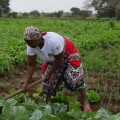 Africa must unlock the power of its women to save climate change
Africa must unlock the power of its women to save climate change
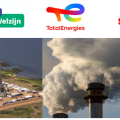 PFZW scraps funding from Total and others for failure to transition into a cleaner energy mix.
PFZW scraps funding from Total and others for failure to transition into a cleaner energy mix.
MEDIA FOR CHANGE NETWORK
Four hundred fifty victim families of the Oil Palm project in Buvuma are to receive compensation by this Friday – Witness Radio
Published
3 weeks agoon
December 17, 2025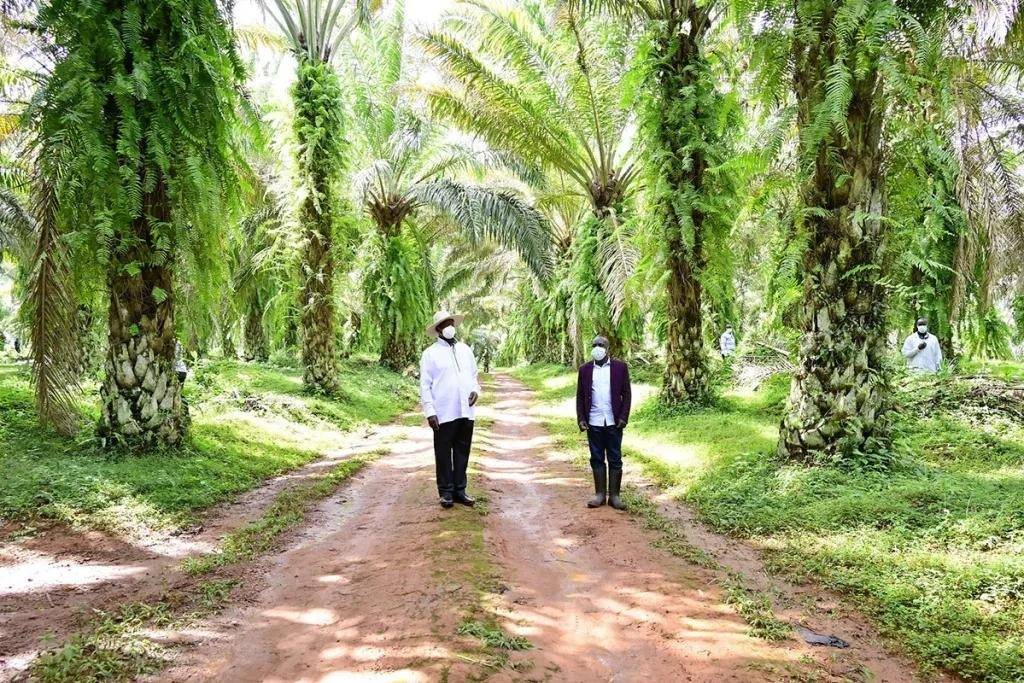
By Witness Radio team.
Entebbe, Uganda-President Yoweri Museveni has directed the Ministry of Agriculture, Animal Industry and Fisheries (MAAIF) to compensate the oil palm Project immediately Affected Persons (PAPs) in Buvuma District, following a physical meeting with residents who had camped in Entebbe for nearly two weeks protesting delayed and selective compensation. The 450 victim families are part of over 1400 families that have lost their land to the oil palm project in Buvuma district.
The affected residents, numbering approximately 450, had sought the President’s intervention after being repeatedly excluded from the ongoing compensation process under the National Oil Palm Project (NOPP), despite earlier presidential directives on their compensation.
During the meetings on Friday and Saturday, community representatives told the President about prolonged delays, lack of transparency, and exclusion from compensation lists.
“We told the President about the back-and-forth his ministries have been sending us through, the lack of participation, and how we have been wrongly portrayed as people who do not own land when we do. Because he knows us, we reminded him of the directive he issued when he visited our area, which his ministries later claimed they were not aware of,” Witness Radio source highlighted.
President Museveni reportedly expressed surprise over the continued delays.
“I thought they had paid you. Why is it taking so long?” the President was quoted as saying during the meeting.
The President immediately directed MAAIF to work closely with the Office of the President to ensure that compensation is processed and paid without further delay.
According to the source, who attended the meeting, the President personally followed up on the matter.
“I have been directly talking to the President, and he told me that he is sending representatives from his office. He said he advised them to work with MAAIF to make sure we are compensated, and he wanted this to be done soon,” the source added.
While more than 200 residents had camped in Entebbe, the President advised them to select 20 representatives to ensure their voices are heard and that they feel included in the process.
“The President advised us to reduce to 20 people to represent the whole community since we knew what everyone wanted,” it added.
Following the President’s order, a joint meeting between representatives of the affected residents, MAAIF, and officials from the President’s Office was held yesterday in Entebbe.
It was resolved that compensation should be completed before Friday.
During the meeting and after reviewing relevant supporting documents, residents revealed that it was agreed that the government would compensate their group of approximately 450 affected persons with 16 billion Uganda shillings, which is intended to cover land loss, destroyed crops, and displacement caused by the oil palm project, clarifying how the funds will address their specific losses.
This directive comes close to two weeks after residents from Nairambi, Busamizi, Buvuma Town Council, and Buwooya Sub-counties camped in Entebbe, accusing government ministries of ignoring an earlier presidential order issued during the President’s June 18, 2025, visit to Buvuma District.
During that visit, the President had directed that all affected households be compensated and that 28 billion shillings be allocated, with 14 billion to be released immediately. However, six months later, many residents remained uncompensated, prompting renewed protests.
The compensation dispute dates back to 2018, when more than 100 residents sued the government and Bidco in Mukono High Court over forced evictions, delayed compensation, and lack of disclosure. The case was later transferred to Lugazi High Court.
During his June visit, the President advised the complainants to pursue an out-of-court settlement, promising faster compensation. This pledge, residents say, had not been honored until the latest intervention.
Even after the Ministry of Agriculture announced earlier this month that it would compensate oil palm-affected residents in Buvuma and Sango Bay, the group said it had not been consulted, prompting them to demand a meeting with the president.
As of publication, the affected residents say they are awaiting implementation of the President’s directive, hoping that the latest orders will finally bring an end to years of uncertainty and hardship.
“By Friday, we hope everything will have been processed because we submitted all the necessary supporting documents, and a team from the Office of the President is supervising the process,” it added.
According to a press statement from the Ministry, more than 11 villages are expected to benefit from the compensation exercise, indicating that many affected people are yet to be compensated. The statement revealed:
Based on the Government Valuers’ report, full payments have been made to 301 PAPs in five villages, and the Ministry plans to pay 1,405 PAPs across 11 villages.
When asked about the other communities that are not part of the initial 450 beneficiaries who ran to the president, the Ministry of Agriculture spokesperson, Ms. Connie Acayo, stated that the Ministry would follow due process, including clear criteria and verification steps, to ensure that all affected persons are identified and fairly compensated.
“Those people told us they do not want to hear about compensation procedures, valuation, or other processes associated with compensation; they only want the money. That is, maybe, why they went to the President. However, our Ministry is transparent, and we must follow established procedures when implementing such activities,” Connie told Witness Radio.
Related posts:
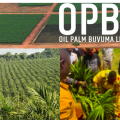
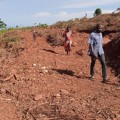 Uganda: Buvuma residents land cleared for oil palm growing before compensation
Uganda: Buvuma residents land cleared for oil palm growing before compensation
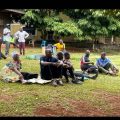 Tension as Project-Affected Persons demand to meet Uganda’s President over Oil Palm growing on their grabbed land.
Tension as Project-Affected Persons demand to meet Uganda’s President over Oil Palm growing on their grabbed land.
 Palm Oil project investor in Landgrab: Witness Radio petitions Buganda Land Board to save its tenants from being forcefully displaced palm oil plantation.
Palm Oil project investor in Landgrab: Witness Radio petitions Buganda Land Board to save its tenants from being forcefully displaced palm oil plantation.
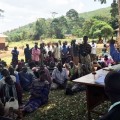 Oil palm growing: New twist as Buvuma residents disown group over compensation
Oil palm growing: New twist as Buvuma residents disown group over compensation

Land tenure security as an electoral issue: Museveni warns Kayunga land grabbers, reaffirms protection of sitting tenants.

COP30 : a further step towards a Just Transition in Africa

‘Food and fossil fuel production causing $5bn of environmental damage an hour’

Four hundred fifty victim families of the Oil Palm project in Buvuma are to receive compensation by this Friday – Witness Radio

Four hundred fifty victim families of the Oil Palm project in Buvuma are to receive compensation by this Friday – Witness Radio

Women’s groups demand equality in land tenure security to boost food production.

Tension as Project-Affected Persons demand to meet Uganda’s President over Oil Palm growing on their grabbed land.

Land commission starts updating govt land countrywide.

Innovative Finance from Canada projects positive impact on local communities.
Over 5000 Indigenous Communities evicted in Kiryandongo District
Petition To Land Inquiry Commission Over Human Rights In Kiryandongo District
Invisible victims of Uganda Land Grabs
Resource Center
- REPARATORY AND CLIMATE JUSTICE MUST BE AT THE CORE OF COP30, SAY GLOBAL LEADERS AND MOVEMENTS
- LAND GRABS AT GUNPOINT REPORT IN KIRYANDONGO DISTRICT
- THOSE OIL LIARS! THEY DESTROYED MY BUSINESS!
- RESEARCH BRIEF -TOURISM POTENTIAL OF GREATER MASAKA -MARCH 2025
- The Mouila Declaration of the Informal Alliance against the Expansion of Industrial Monocultures
- FORCED LAND EVICTIONS IN UGANDA TRENDS RIGHTS OF DEFENDERS IMPACT AND CALL FOR ACTION
- 12 KEY DEMANDS FROM CSOS TO WORLD LEADERS AT THE OPENING OF COP16 IN SAUDI ARABIA
- PRESENDIANTIAL DIRECTIVE BANNING ALL LAND EVICTIONS IN UGANDA


